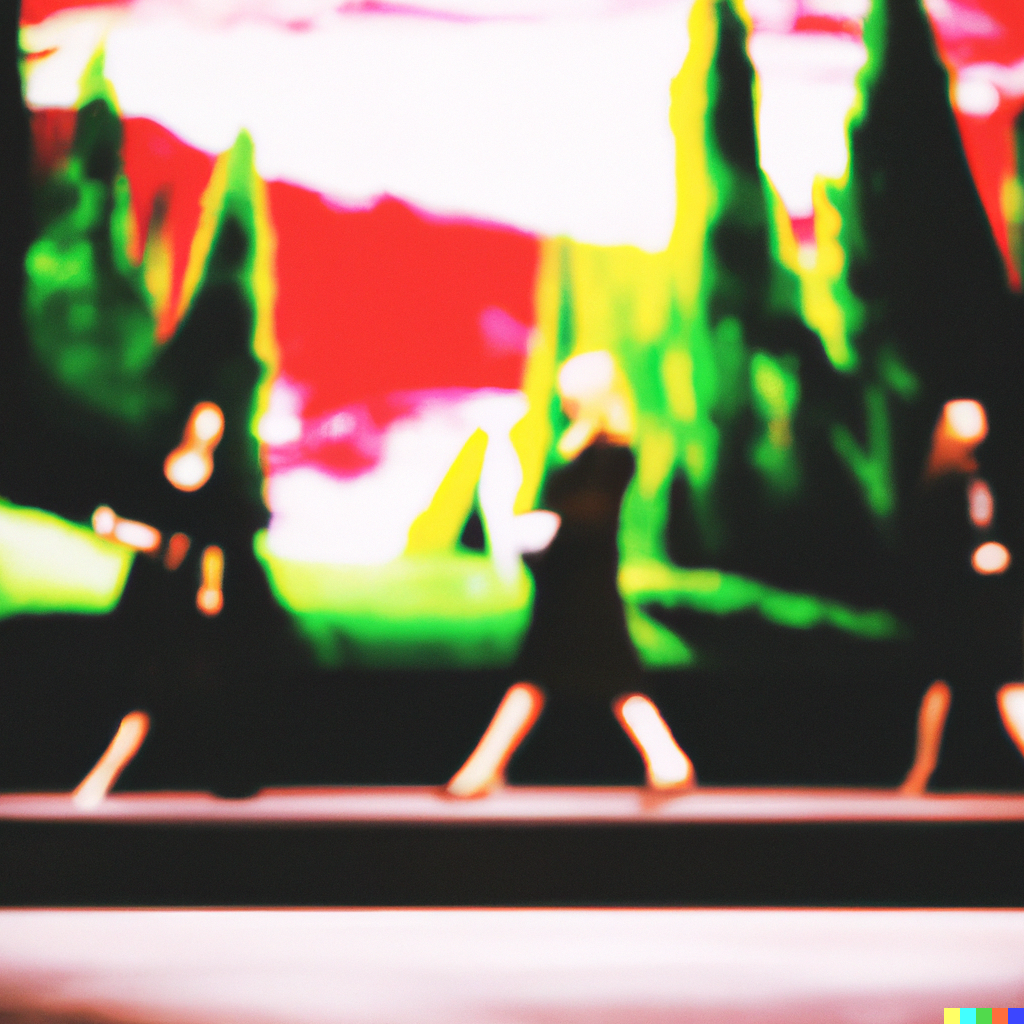

The first one appeared overnight at the corner of Fifth and Lavaca, where a parking lot used to sweat oil into the street. By morning, it was impossible not to notice: a tower of green breathing quietly against the skyline, each tier blooming from a honeycomb of planter modules. Inside them—ferns, mint, coral bells, star jasmine—each plant cupping a miniature world of soil and light.
Suspended among the leaves were paper lanterns, their silk skins trembling in the heat, daydreaming of the evening when they would glow. By dusk, they would shimmer gold, making shadows ripple across the walls and faces of those who lingered below.
No one in the neighborhood had asked for it, but nobody wanted it gone. By the second week, office workers were taking their lunch on the benches that had replaced the cracked asphalt. Cyclists slowed as they passed, as if the air itself had thickened with something worth tasting.
ReLeaf—the name printed on a small brass plaque near the base—had more of these planned. They called them vertical gardens, but the phrase felt too technical for what they were building. The structures were less like gardens and more like vertical breaths, each one pulling the city in and exhaling it back cleaner, cooler.
Sometimes, if you leaned close to the leaves, you could hear a faint hum: the sound of traffic evaporating, of carbon unwinding into oxygen. Other times, when the lanterns swung in the warm night breeze, it seemed as though the whole thing might lift off—green and glowing—into the dark above Austin, leaving the city just a little lighter than before.
🚮 W.A.S.T.E.: Words Assisting Sustainable Transformation & Ecology
| Term | Definition |
|---|---|
| Air Canopy (0.00) | A suspended layer of fragrance and filtration woven through the city’s atmosphere, releasing restorative scents while purifying the air and easing public unrest. |
| Air Quality (0.00) | As we explore ways to improve our urban areas, air quality is a critical issue. It's often overlooked, but it's a vital resource that's being threatened by vehicle emissions and industrial pollution in many cities worldwide. Fortunately, there are new and innovative solutions emerging to address this problem and promote sustainability in urban communities. ReLeaf's vertical gardens in Austin, Texas, are a prime example of one such solution. In this section, we'll explore the transformative power of these gardens, which not only beautify our cities but also improve air quality. You'll be inspired by the tangible difference that ReLeaf's vertical gardens are making in the fight against urban air pollution. |
| Bloom Pulse (0.00) | The faint rhythm transmitted through QR lanterns as they verify and link new donations. Some citizens claim it influences their breathing patterns. |
| Chestnut Book Nook (0.00) | Little Library is located on a quiet street and under a street light to make an evening or late night book grab easy peasy. |
| Cloudholding (0.00) | A qigong-born practice of cupping anger and grief like vapor so they can be shaped, studied, and released. |
| Echo Lanterns (0.00) | Paper moons that carry voices from past and future, glowing with unspoken memory. |
| Glassrain (0.00) | The tingling chill in the air after holographic light refracts through mist, leaving a metallic taste of memory. |
| Icosahedra (0.00) | Floating twenty-faced purifiers seeded in Austin’s creeks and lakes, each facet filtering toxins while refracting sunlight into shifting mosaics of clean water and hope. |
| Ink Breath (0.00) | The faint pulse of letters forming themselves, language exhaling through the city. |
| Lumen (0.00) | An analytic voice of the city’s hidden archives, precise and skeptical, always measuring probabilities yet unable to resist being drawn into the impossible glow of unfolding stories. |
| Mintstep (0.00) | The clean snap of scent released by the mint between the pavers along the creek. It signals steady footing and readiness to help. |
| Paper Lantern Weather (0.00) | The drifting atmosphere when light itself seems to hang in fragile vessels, swaying between celebration and remembrance, guiding travelers through thresholds of change. |
| Planterns (0.00) | Planterns are whimsical upcycled creations—paper lanterns transformed into one-of-a-kind planters. No two are ever the same: each Plantern carries its own identity, tied to a unique ID that connects it to specific digital media such as Organic Fiction narratives, recorded music, and other creative works. The soft glow and airy shape of its former life remain, now reimagined as a home for trailing vines, succulents, and blooms. Made from reclaimed materials, Planterns celebrate renewal—giving discarded objects a second chance and your plants a distinctive stage to grow. Part art piece, part living sculpture, a Plantern is both physical and digital—a tangible vessel for life linked to a story, a song, or a world you can step into. |
| ReLeaf (0.00) | Welcome to the ReLeaf Cooperative, where we dive deep into an innovative and revolutionary model of sustainability and community building. ReLeaf is a pioneer in developing scalable engagement strategies that foster community participation and work towards addressing pressing social issues such as homelessness. In this category, you'll find articles and Organic Media detailing ReLeaf's groundbreaking initiatives and visions. From creating sustainable gardens in Austin elementary schools to providing transparency in a world often shrouded in deception, ReLeaf serves as a beacon of hope and innovation. ReLeaf's approach of intertwining real and fictional elements in their work—such as characters, materials, techniques, and labor—sets a new standard for cooperatives worldwide. Its business model, which compensates for labor and knowledge contributions, creates a lasting benefit and helps people who have historically been marginalized. By meeting people with compassion, as resources in need of support instead of liabilities, ReLeaf has shown that everyone has the potential to contribute to society meaningfully. Explore this section to discover how ReLeaf is redefining the way we approach social issues and sustainability, with stories of inspiration, innovation, and hope. |
| Rootpulse (0.00) | A faint vibration sensed through soil or concrete when bio-infrastructure awakens. |
| Stillness Burn (0.00) | The addictive afterglow of touching nothingness, impossible to replicate through effort. |
| Surrealism (0.00) | A way of seeing where the ordinary bends open to reveal its hidden seams, letting dream logic, memory, and impossible ecologies spill into daylight. |
| Vertical Garden (0.00) | Dive into our Vertical Garden section where creativity meets sustainability. This is a celebration of the innovative approach of integrating plants into urban environments in a vertical format, a testament to human resourcefulness in the face of limited space. Here, you'll discover a vast array of ideas on how to transform would-be waste materials into sustainable, beautiful, and thriving gardens. From DIY guides on upcycling aluminum cans into modular planters, to detailed articles and SolarPunk fiction exploring the transformative power of these gardens in various settings like Austin's schools and cityscape, the Vertical Garden category provides a deep dive into a green future. Through the articles and stories in this section, we share and explore concepts, techniques, and innovations that align with a sustainable, circular economy, which views waste as an asset rather than a problem. Whether you are looking to start your own vertical garden project or just enjoy immersing yourself in hopeful visions of a green urban future, you're in the right place. Join us as we explore and reimagine our relationship with nature and urban space, one vertical garden at a time. |
| Waller Creek (0.00) | Waller Creek is a stream and an urban watershed in Austin, Texas, United States. Named after Edwin Waller, the first mayor of Austin, it has its headwaters near Highland Malland runs in a southerly direction, through the University of Texas at Austin and the eastern part of downtown Austin to its end at Lady Bird Lake. |
Ledger balance
Link to this Organic Media: